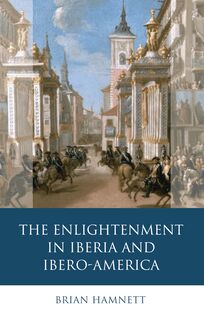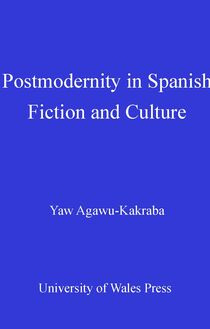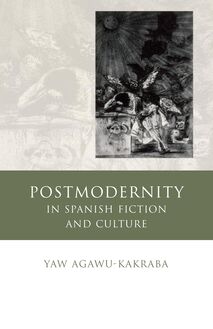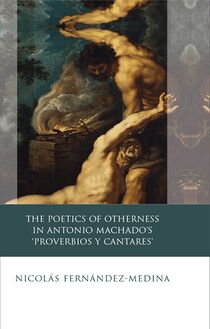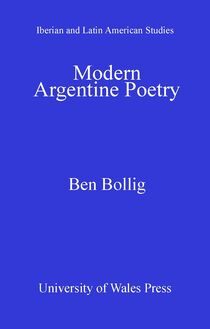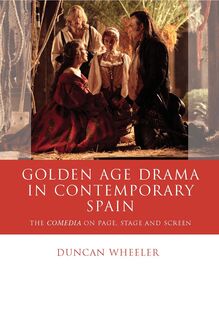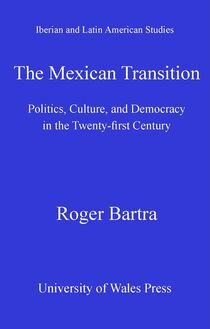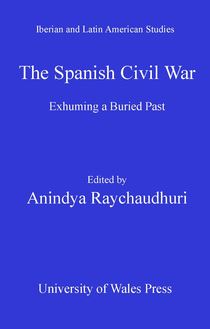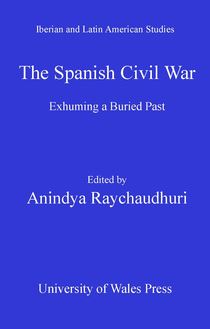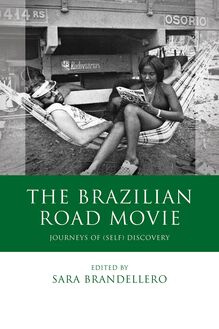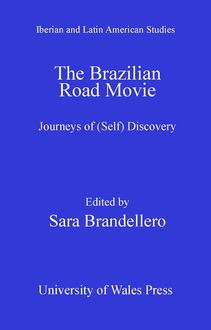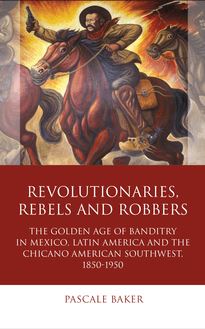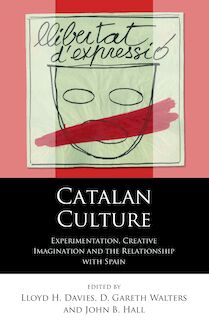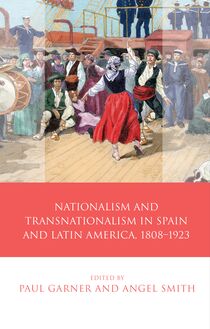-
 Univers
Univers
-
 Ebooks
Ebooks
-
 Livres audio
Livres audio
-
 Presse
Presse
-
 Podcasts
Podcasts
-
 BD
BD
-
 Documents
Documents
-
- Cours
- Révisions
- Ressources pédagogiques
- Sciences de l’éducation
- Manuels scolaires
- Langues
- Travaux de classe
- Annales de BEP
- Etudes supérieures
- Maternelle et primaire
- Fiches de lecture
- Orientation scolaire
- Méthodologie
- Corrigés de devoir
- Annales d’examens et concours
- Annales du bac
- Annales du brevet
- Rapports de stage
La lecture à portée de main
Vous pourrez modifier la taille du texte de cet ouvrage
Découvre YouScribe en t'inscrivant gratuitement
Je m'inscrisDécouvre YouScribe en t'inscrivant gratuitement
Je m'inscrisEn savoir plus
Vous pourrez modifier la taille du texte de cet ouvrage
En savoir plus

Description
María Zambrano is widely regarded as one of the most original Spanish thinkers of the twentieth century. Her biggest contribution to intellectual history is, without doubt, her poetic reason and unique attempt to overcome the limiting coordinates of the framework of rationality established by the Enlightenment. Having spent forty-five years in exile, the relevance of this Spanish Republican thinker has only been recognised in recent decades, and this monograph explores the political dimension present throughout her work to argue for it as one of her key motivations. This monograph, therefore, reveals the political dimension inherent to Zambrano’s proposal for an alternative rationality – that is, poetic reason – and, to this end, this book questions existing assumptions regarding Zambrano’s thought and reframes it with its emphasis on the pivotal role of reason.
Sujets
Informations
| Publié par | University of Wales Press |
| Date de parution | 01 février 2017 |
| Nombre de lectures | 0 |
| EAN13 | 9781783169771 |
| Langue | English |
Informations légales : prix de location à la page 0,2174€. Cette information est donnée uniquement à titre indicatif conformément à la législation en vigueur.
Extrait
IBERIAN AND LATIN AMERICAN STUDIES
María Zambrano
Series Editors
Professor David George (Swansea University) Professor Paul Garner (University of Leeds)
Editorial Board
David Frier (University of Leeds) Lisa Shaw (University of Liverpool) Gareth Walters (Swansea University) Rob Stone (University of Birmingham) David Gies (University of Virginia) Catherine Davies (University of London) Richard Cleminson (University of Leeds) Duncan Wheeler (University of Leeds) Jo Labanyi (New York University) Roger Bartra (Universidad Nacional Autónoma de México)
Other titles in the series
Adolfo Bioy Casares: Borges, Fiction and Art Karl Posso
Barcelona: Visual Culture, Space and Power Helena Buffery & Carlota Caulfield
From Silver Screen to Spanish Stage: The Humorists of the Madrid Vanguardia and Hollywood Film Stuart Nishan Green
Modern Argentine Poetry: Exile, Displacement, Migration Ben Bollig
Catalonia: National Identity and Cultural Policy Kathryn Crameri
Melancholy and Culture: Diseases of the Soul in Golden Age Spain Roger Bartra
The Poetics of Otherness in Antonio Machado’s ‘Proverbios y Cantares’ Nicolas Fernandez-Medina
The Spanish Golden Age Sonnet John Rutherford
IBERIAN AND LATIN AMERICAN STUDIES
María Zambrano
A Life of Poetic Reason and Political Commitment
BEATRIZ CABALLERO RODRÍGUEZ
© Beatriz Caballero Rodríguez, 2017
All rights reserved. No part of this book may be reproduced in any material form (including photocopying or storing it in any medium by electronic means and whether or not transiently or incidentally to some other use of this publication) without the written permission of the copyright owner. Applications for the copyright owner’s written permission to reproduce any part of this publication should be addressed to the University of Wales Press, 10 Columbus Walk, Brigantine Place, Cardiff CF10 4UP.
www.uwp.co.uk
British Library CIP
A catalogue record for this book is available from the British Library.
ISBN 9781783169757
e-ISBN 9781783169771
The right of Beatriz Caballero Rodríguez to be identified as author of this work has been asserted in accordance with sections 77 and 79 of the Copyright, Designs and Patents Act 1988.
Cover image: María Zambrano in 1988. Photograph reproduced courtesy of Fundacíon Maríía Zambrano.
A mi padrino, que me enseñó a preguntar por qué.
María Zambrano at the University of Madrid, around 1928. Reproduced courtesy of Fundacíon María Zambrano.
Contents
Series Editors’ Foreword
Acknowledgements
Chapter 1: Introduction
Chapter 2: Context and Influences
Chapter 3: Biography and Politics
Chapter 4: Exile and Zambrano’s Political Philosophy
Chapter 5: Zambrano in (re-)construction
Chapter 6: Zambrano’s relationship with language
Chapter 7: Conclusion
Notes
Select Bibliography
Series Editors’ Foreword
Over recent decades the traditional ‘languages and literatures’ model in Spanish departments in universities in the United Kingdom has been superseded by a contextual, interdisciplinary and ‘area studies’ approach to the study of the culture, history, society and politics of the Hispanic and Lusophone worlds – categories that extend far beyond the confines of the Iberian Peninsula, not only in Latin America but also to Spanish-speaking and Lusophone Africa.
In response to these dynamic trends in research priorities and curriculum development, this series is designed to present both disciplinary and interdisciplinary research within the general field of Iberian and Latin American Studies, particularly studies that explore all aspects of Cultural Production (inter alia literature, film, music, dance, sport) in Spanish, Portuguese, Basque, Catalan, Galician and indigenous languages of Latin America. The series also aims to publish research in the History and Politics of the Hispanic and Lusophone worlds, at the level of both the region and the nation-state, as well as on Cultural Studies that explore the shifting terrains of gender, sexual, racial and postcolonial identities in those same regions.
Acknowledgements
I am indebted to Alexis Grohmann, Andrew Ginger and Francis Lough for their support and guidance. I am thankful to the commissioning editor, Sarah Lewis, for believing in this manuscript from the beginning and for all her patience throughout the process.
I am immensely grateful to Linda Silvester and to Fran Villalba and their firm Stilogo for their translations of Zambrano’s quotations into English. I also wish to express my gratitude to the University of Strathclyde and my colleagues, whose help has been inestimable.
Finally, I would also like to thank my partner, my family and very specially Antonio Lozano Ortiz, whose insistence and continued support have ensured the completion of this manuscript.
Chapter 1
Introduction
María Zambrano (1904–91) is widely regarded as one of the most original Spanish thinkers of the twentieth century. Her biggest contribution to intellectual history is, without doubt, her poetic reason; that is, her unique attempt to overcome the limiting coordinates of the framework of rationality established by the Enlightenment. Having spent forty-five years in exile, the relevance of this Spanish republican thinker has only been acknowledged in recent decades. Nevertheless, a certain aura of mysticism shrouds her writings. Here, I contend that, although the presence of a spiritual component is undeniable, her thought is far from mystical or unapproachable, as it is frequently believed to be. Instead, what Zambrano does is to propose an alternative reason – razón poética – by means of which she links the personal to the political so that the path of self-development becomes the path for civic and political engagement and fulfilment. Thus, this monograph argues that the scope of her intellectual contribution should not be limited to her impact on philosophy, the field with which her work is most closely associated. Beyond that, poetic reason also has extensive political ramifications which need to be addressed. That is why I consider this effort to re-assess the political dimension of her work necessary and long overdue. More broadly, this monograph may be understood as part of a wider effort to re-evaluate and understand the work of Spanish exiles after the Spanish Civil War.
The central argument of this monograph is that Zambrano’s thought is driven by a core pedagogical and political project. Whereas the political content of some of her early writings, as well as her engagement with the republic’s cause prior to and during the Spanish Civil War, are all well known, the political component of her thought after this period has passed largely unnoticed. Thus, the purpose of this book is to reveal the political dimension that is inherent to Zambrano’s poetic reason. To this end, it reframes Zambrano’s poetic reason in the light of her biographical choices and, finally, it examines the ontological and epistemological assumptions which underpin her poetic reason.
In common with other Spanish and European thinkers such as Unamuno, Ortega, Levinas, Foucault, Nietzsche, Heidegger and the members of the Frankfurt School, Zambrano elaborates a sharp criticism against the dominance of discursive reason. 1 The term discursive comes from the Greek diánoia and it refers to the kind of reason which, based on the principle of causality, conceives the acquisition of knowledge only through inference; that is to say that its epistemology rests on the inference of new knowledge from pre-existing premises. The cornerstones of this discursive reason include Aristotelian logic, Cartesian reason and post-Kantian morality. In line with this, the enthronement of reason brought about by the Enlightenment represents the cusp of discursive reason.
In contrast, Zambrano’s thought constitutes an idiosyncratic and distinctive critique of the dominant paradigms of this kind of rationality, which she sometimes refers to simply as Western reason, of which she is insistently critical. This critique can already be observed in her first published book, Horizonte del liberalismo (1930), 2 and it becomes one of the common threads throughout her work, present in publications of a very different nature, such as Filosofía y poesía (1939), La agonía de Europa (1945), El hombre y lo divino (1955), Persona y democracia (1958) and La tumba de Antígona (1967), to name but a few. In fact, her oeuvre as a whole can be described as a reaction against and a search for an alternative to this type of reason, which she deems not simply as insufficient, but – more pressingly – as absolutist and tyrannical.
Beyond her critique, Zambrano’s writings also have an important constructive element: she proposes an alternative rationality based on an experiential epistemology and on a wider understanding of what reason is. As discussed in detail in chapter 6 , poetic reason constitutes a destabilizing alternative in as far as it integrates elements traditionally banished from the confines of rationality, such as spirituality and intuition, but also because it reclaims the value of elements considered contrary to reason, such as delirium. Consequently, as Mercedes Gómez Blesa puts it, Zambrano’s thought constitutes ‘una de las reflexiones más radicales sobre el logos filosófico de nuestra tradición’. 3 Not only that, her wider reason originates from and contains a profound political concern whose implications need to be addressed.
Availability and acknowledgement of Zambrano’s work
Zambrano was a diverse and prolific writer. Although she mostly wrote essays, her works encompass many genres, including newspaper articles, autobiography, novel, confession, theatre and the cultivation of an idiosyncratic genre closely linked to her poetic reason: delirium, whose implications are discussed in chapters 4 and 6 .
Her first publication was a small article for her school journal in 1914. The article, however, met with the disapproval of her father and
-
 Univers
Univers
-
 Ebooks
Ebooks
-
 Livres audio
Livres audio
-
 Presse
Presse
-
 Podcasts
Podcasts
-
 BD
BD
-
 Documents
Documents
-
Jeunesse
-
Littérature
-
Ressources professionnelles
-
Santé et bien-être
-
Savoirs
-
Education
-
Loisirs et hobbies
-
Art, musique et cinéma
-
Actualité et débat de société
-
Jeunesse
-
Littérature
-
Ressources professionnelles
-
Santé et bien-être
-
Savoirs
-
Education
-
Loisirs et hobbies
-
Art, musique et cinéma
-
Actualité et débat de société
-
Actualités
-
Lifestyle
-
Presse jeunesse
-
Presse professionnelle
-
Pratique
-
Presse sportive
-
Presse internationale
-
Culture & Médias
-
Action et Aventures
-
Science-fiction et Fantasy
-
Société
-
Jeunesse
-
Littérature
-
Ressources professionnelles
-
Santé et bien-être
-
Savoirs
-
Education
-
Loisirs et hobbies
-
Art, musique et cinéma
-
Actualité et débat de société
- Cours
- Révisions
- Ressources pédagogiques
- Sciences de l’éducation
- Manuels scolaires
- Langues
- Travaux de classe
- Annales de BEP
- Etudes supérieures
- Maternelle et primaire
- Fiches de lecture
- Orientation scolaire
- Méthodologie
- Corrigés de devoir
- Annales d’examens et concours
- Annales du bac
- Annales du brevet
- Rapports de stage
